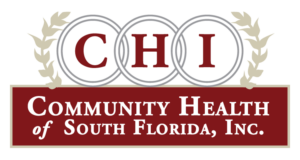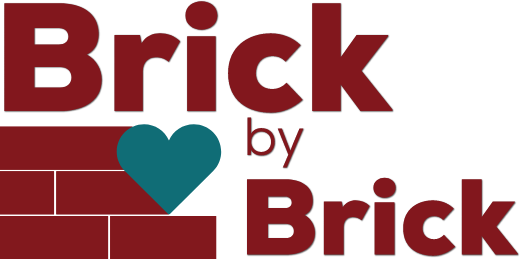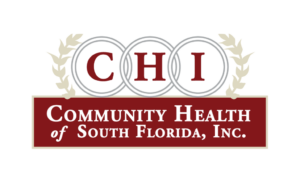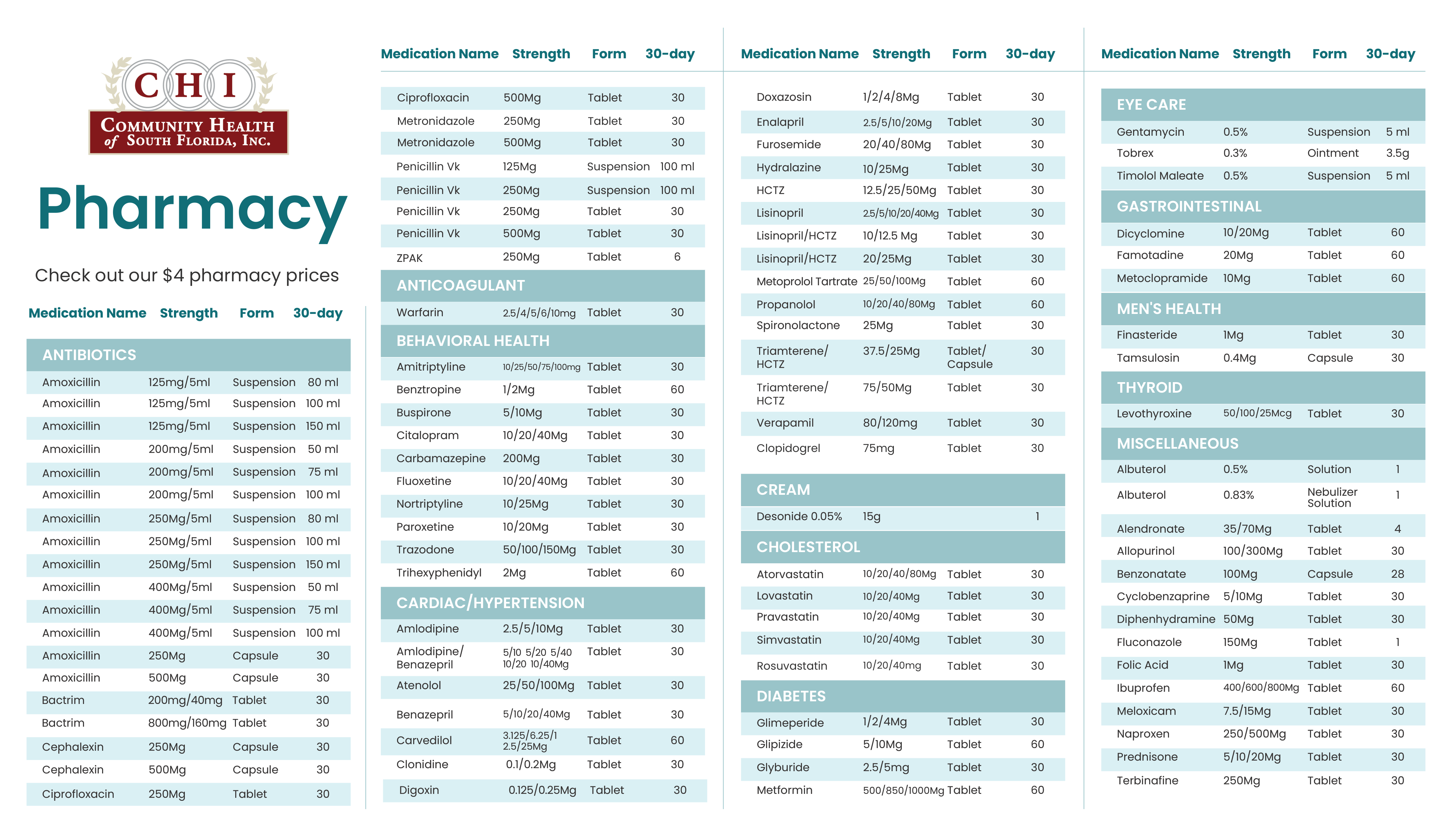1960’s | New Beginnings
In the late 1960s, many residents of South Miami-Dade County had limited access to a hospital. These residents were predominately Black Americans, Bahamians and Mexican migrant and seasonal farm workers who were uninsured. Some had no access to health care at all.
Outpatient treatment of routine medical problems, and primary health care that could have prevented simple illnesses or more serious diseases, were luxuries. Even worse, those with trauma and urgent cases were transported to hospitals in downtown Miami. Back then, African-Americans were not allowed to be treated at the nearest hospital in Homestead – the James Archer Smith Hospital. But some of them died before they reached Jackson Memorial Hospital, an excellent, but distant facility that was 45 miles from Homestead. Many lacked their own vehicles and public transportation routes didn’t reach them in rural lands.
Among those visionaries who called for change was Doris lson, for whom Community Health of South Florida Inc.’s headquarters is named. As an immigrant who was born in the Bahamas, she had worked in the fields picking vegetables and then as a seasonal worker peeling tomatoes in a canning factory. Mrs. Ison, who had visited the migrant farms and camps, saw the poverty, sick children, and farmworkers ill from exposure to pesticides. She was so appalled at the conditions that she became impassioned to obtain health care access for all, but particularly African-Americans and Mexican migrant farmworkers in South Dade. Mrs. Ison advocated to secure community and government support for a health center and even went to local churches convincing doctors to volunteer their time to help.
Facts:
- Doris Ison organized a coalition of people from different organizations and from her church to start a health center for all races.
- The James Archer Smith Hospital in Homestead was for whites only, so blacks often died on the way to Jackson Memorial Hospital.
- Doris Ison saw sick children with whooping cough at the South Dade Labor Camp.
1970’s | Early Years
In April of 1971, Mrs. Ison helped galvanize action and community leaders reached an agreement to establish Community Health of South Dade Incorporated (CHI). With federal money from the Office of Economic Opportunity, and a supplement from Metropolitan Dade County, CHI opened two trailers near U.S. Highway 1 and SW 216th Street. Soon, a second facility – the Martin Luther King Jr. Clinica Campesina – was opened in 1973 to serve indigent and migrant families in Homestead. Mrs. Ison wanted a name a name for the new health center that would be a symbolic nod to the black residents who were motivated by the dream of Dr. Martin Luther King Jr., who was assassinated in 1968.
Those two original trailers were transported a few miles down the road to CHI’s current location when the closing of Kendall Hospital prompted discussion to build a more lasting structure. By 1972, Miami-Dade County agreed to help CHI build a permanent facility with funds from the county’s Decade of Progress Referendum. CHI also received federal funding after it was proclaimed a federally qualified health center. The facility was built on a 28-acre site on SW 216th Street conveniently located just east of Florida’s Turnpike, of which the Homestead Extension was completed in 1974.
On Feb. 27, 1974, Ison went to Washington, D.C., and spoke to the Special Committee on Aging before the U.S. Senate advising them about the elderly and transportation issues. She told them help was needed to get people to medical appointments. Transportation in South Dade was costly and sparse at the time. However, CHI bought mini-buses to bring workers from the migrant camps to CHI health centers.
For all that Mrs. Ison had done in advocating for a health care center for all, she was recognized with one of the greatest honors. In 1976, the board of CHI voted unanimously to name the nonprofit’s new $4 million facility for the health care advocate – the Doris Ison South Dade Community Health Center.
When Sen. Ted Kennedy, D-Mass., came to Miami in 1977, he made a point to visit CHI and meet with Mrs. Ison. Kennedy’s visit was symbolic since he had fought for an appropriation of $51 million to develop 30 new health centers, which then turned into more than 200 by 1973.
CHI’s early years focused on disease prevention and general check-ups within primary care along with the addition of behavioral health programs including a crisis stabilization unit. In addition, CHI started dental services, a pharmacy, a laboratory and an imaging center.
In the convention of times, the emphasis was on making and keeping people healthy, often on a charitable basis. At this time, administrators realized that CHI should find additional ways to sustain the operations and growth of the company by seeking more revenue from patient fees and insurance payments.
Facts:
- Dental Services started at CHI.
- Pharmacy Services began.
- Laboratory Services implemented.
- An Imaging Center was created.
- A Crisis Stabilization Unit was opened.
- CHI began a Behavioral Health Program.
- First vans were secured to transport patients to and from the health center.
- Construction was completed on the first building called the South Dade Center, now the Doris Ison Health Center.
- In 1971, CHI was born out of two trailers with volunteer doctors.
1980’s | National Pioneering
By 1980, facilities and staff had expanded: we offered a women infant, children program operated by the Public Health Department, eye care, emergency treatment and a variety of primary care services. At the time, we referred cases to specialty facilities only as necessary.
In the mid ’80s, CHI experienced a decade of consistent growth under the then new President and CEO, Brodes H. Hartley, Jr. Outreach was a major focus of programs at this time. We added the South Dade and Everglades migrant centers and expanded our behavioral health crisis stabilization unit. We developed a child protection team, opened therapeutic group homes for youngsters, and established innovative programs at COPE South, Southridge and Homestead High Schools. CHI also responded to the incessant spread of AIDS, and opened transitional housing for the homeless. Technological improvements included ultrasound, mammography, diagnostics and analyses.
The 80’s was also a great time for embracing the efficiency of computerized management information systems. Out of the high medical need to serve the Florida population at efficient levels with low cost, CHI and four other health centers pioneered Health Choice Network. HCN is an organization that serves the purpose of delegating essential business services that can be more efficiently or effectively operated jointly, thus allowing the centers to serve more patients,offer more services, and enhance the level of care they provide to improve health outcomes. Additionally, to better serve the operating tasks of CHI, the Community Health Foundation,Inc., was formed to pursue development and fund raising opportunities
Facts:
- In 1984, Col. Brodes H. Hartley Jr. became CHI’s fourth executive director, now CEO/President.
- Ambulatory Walk-in Services converted to Urgent Care Center.
- CHI is a founding member of Health Center Controlled Network (HCN).
- Women’s Services (OB/GYN) was started at CHI.
- The Martin Luther King Jr. Clinica Campesina was opened.
1990’s | A Great Time of Growth
CHI met the challenge of the 1990s with cost containment. CHI began relationships with HMOs and other forms of managed care. CHI aggressively marketed its unique “one stop shop” concept in a society increasingly concerned about health care, its accessibility, quality and cost. In 1992, Hurricane Andrew devastated South Dade and, the next day after the storm, CHI opened its doors. The two trailers housing the South Dade and Everglades health centers were destroyed and, with the assistance of FEMA services, resumed in new trailers.
During the 1990s CHI completed construction projects that provided permanent state-of-the-art facilities at South Dade, Everglades, Naranja, West Perrine and the Martin Luther King Jr. Clinica Campesina Annex. The school-based health center programs at COPE South, Homestead High, Southridge Senior High and Mays Middle schools increased the number of CHI’s delivery sites. In addition creating outreach and volunteer programs, CHI’s Radiology Department became a certified mammography facility. In November of 1998, CHI was accredited by the Joint Commission.
Facts:
- CHI opened Everglades, West Perrine, South Dade and Naranja Health Centers.
- CHI began a Homeless Services Program.
- CHI was named a Certified Mammography Facility.
- An Outreach Program was started.
- A Volunteer Program was created.
- The School-Based Health Program was launched with three schools in Miami-Dade County.
2000’s | Continued Growth
Following the unprecedented level of growth and development, CHI’s client base increased tremendously. CHI’s dental program added more dentists with dental services at most of its locations. Special Programs that focus on chronic disease management, healthy living skills and for pregnant women helped engrave in the minds of individuals that CHI is a “one stop shop” to take care of all of their health care needs in one location. CHI’s motto of “Patient Care Comes First” was born.
In order to better serve the community, CHI modernized its medical records department with Electronic Health Records (EHR) and Electronic Oral Health Records (EOHR). Electronic records have helped improve accuracy, increase workflow and save money, thus providing CHI customers with excellent customer service. It was also at this time when a niche market was discovered; the need to provide health care service to gainfully employed individuals without health insurance. Thus, CareNet was born – a discount medical plan that provides discounts at certain health care centers and access to a wide network of providers for medical services.
In addition, CHI’s school-based health program was upgraded to a mid-level provider level, more patient transportation vehicles were purchased, and the Marathon Health Center in the Keys was opened. More improvements were made from the radiology department renovated and upgraded into a Diagnostic Center to robotic medication dispensing machines installed in the pharmacies.
In an effort to develop and train the leaders and talent of individuals in the health care field, partnerships have been created, developed and nurtured with many great health and educational organizations such as AmeriCorps, the University of Miami, Florida Agricultural and Mechanical University, Florida International University, Barry University and Nova Southeastern University.
Facts:
- School-Based Health Program was upgraded to Mid-Level Provider Model.
- Patient transportation vehicles were purchased.
- Radiology Department was renovated and upgraded to Diagnostic Center.
Marathon Health Center was opened. - CHI purchased robotic medication dispensing machines for the Pharmacies.
2010’s | “Building for the future”
The 2010s shows tremendous growth for CHI with the opening of four more health centers and the first-ever teaching health center located within a community health center in the state of Florida. CHI also started offering in-house fingerprinting services for employees and the community at large, as well as offering medication delivery and extending hours for services.
In August of 2013, CHI opened two locations in Coconut Grove and South Miami. The two health centers now increase access to CHI services for those living just south of downtown Miami. In March of 2014, the Tavernier Health Center opened in the Keys. Nearly half of the population in Tavernier and the surrounding communities are uninsured and considered to be a medically underserved area, according to the Health Resources and Services Administration (HRSA). After identifying this great need for quality, affordable and convenient medical care in the Upper Keys, CHI applied for and was awarded federal grant money to help open this new center. This location in Tavernier is less than an hour from Key West.
In July of 2014, CHI became the very first community health center in the State of Florida to house a teaching health center. The Brodes H. Hartley, Jr. Teaching Health Center at CHI was named after CHI’s former President and CEO who has been a beacon of growth and development for the nonprofit. CHI is not only contributing to the national effort to train primary care clinicians to meet the needs of the many newly insured from the Affordable Care Act, but the medical residents are bringing a higher level of quality to the organization. The Graduate Medical Education program is fully accredited by the American Osteopathic Association (AOA), and CHI’s Ambulatory, Laboratory and Behavioral Health Services are accredited by The Joint Commission. While residents, who specialize in family medicine and psychiatry will graduate with CHI as their official training site, they also rotate through local hospitals and with local specialists.
In August of 2015, CHI opened its 11th health center in West Kendall near the Kendall-Tamiami Executive Airport. It is right in the middle of the ever-expanding West Kendall area.
While CHI’s humble beginnings were focused on the uninsured and underinsured, it has grown to provide health care to the insured with competitive rates. Also, CHI has patients from more than 30 different cultures making its population culturally and ethnically diverse.
- Six Sigma Process Improvement Training for CHI Leadership.
- CHI started offering in-house fingerprinting services.
- CHI became the first Teaching Health Center at a Federally Qualified Health Center (FQHC) in Florida.
- CHI began enrolling patients in the Affordable Care Act starting in 2013.
- CHI acquired a total of 42 School-Based Health Centers.
- South Miami, Coconut Grove and Tavernier Health Centers opened.
- A pro-active Call Center was created.
- A HEDIS Department was founded.
- NCQA designated CHI as a Patient-Centered Medical Home Level 3 (highest level possible).
- CHI created a Senior Center of Excellence.
- The CHI Community Initiative (CCI) was started.
- CHI began offering Medication Delivery.
- CHI began the Journey to Excellence with Studor Group Training for CHI Leaders.
2020’s | Present “Remarkable Innovation”
As the new decade dawned, the world came to a standstill with the declaration of COVID-19 as a global pandemic. The impact of the pandemic was strongly felt in our local community. When the world began to close its doors, CHI remained committed to serving the South Florida community. In March 2020, CHI was the first facility to offer drive-through COVID-19 testing in Miami-Dade and Monroe Counties. By the end of the year, 8,287 patients were administered a COVID-19 test. The organization also implemented COVD-19 vaccines across all of its health centers.
In May 2020, CHI broke ground on the Children’s Crisis Center. The facility will serve as the first crisis unit for children in southern Miami-Dade and Monroe Counties and will extend care to thousands of children suffering from a mental health crisis.
CHI continued to push the envelope, innovating new resources for the community. In July 2020, the health center launched the Mobile Medical Van at the height of the pandemic. The mobile unit promised to deliver exceptional service to underserved patients who could not otherwise make the trip to a traditional medical center. Despite challenges, the CHI care team ensured COVID-19 safety protocols to safeguard both patients and staff.
In 2021, CHI celebrated 50 years of service to the South Florida community. The anniversary marked a significant time of reflection for the health center, commemorating five decades of devotion to the people they serve.
October 2021 welcomed new president and CEO, Blake Hall, who had been apart of the CHI team for 15 years as Chief Operating Officer. With his leadership, CHI looked toward the future, aiming to evolve and grow to meet the needs of the community.
The state-of-the-art Key West Health Center opened its doors on December 9, 2021, making it CHI’s third health center in the Florida Keys. This gave CHI a presence now in the upper, middle, and lower keys. Key West offers its patients primary care and behavioral health and is expected to add even more services. In 2022, CHI also opened the Hammocks Health Center, the second health center in the rapidly growing West Kendall community.
In the 2020s, CHI underwent major construction and renovation to most of its health centers that would improve care and resources for patients across southern Miami-Dade and Monroe counties. These projects included, the Doris Ison Health Center dental services expansion, remodeled interior signage for several health centers and the Teaching Health Center administrative suite expansion at Doris Ison.
Facts:
- CHI becomes the first healthcare facility to offer drive-through COVID-19 testing in Miami-Dade and Monroe Counties.
- CHI breaks ground on the Children’s Crisis Center.
- Celebrated 50 years of service to the South Florida Community.
- Blake Hall announced as new President and CEO.
- The Mobile Medical Van launched.
- Key West Health Center and Hammocks Health Center opens.
- CHI launches EPIC, the state-of-the-art health record system, for all centers.
- Clinical expansions and extensive renovations completed at most CHI locations.
- CHI is awarded the coveted Governor’s Sterling Award.
- The Health Resources and Services Administration (HRSA) awarded CHI 3 prestigious awards: Health Center Quality Leader, Access Enhancer and Advancing HIT for quality.
- CHI received bronze status, indicating it is a “Health Center Quality Leader”, ranking in as one of the highest-performing health centers nationwide.
- Implemented a new electronic health record system called Epic. The system improved continuity of care between CHI and outside providers. It also created a new patient portal called MyChart allowing patients to easily access their medical records, schedule appointments, message their providers, pay bills and much more all electronically.
Present:
- Coconut Grove Health Center continues extensive renovations.
- Key Largo Health Center under construction.
- Children’s Crisis Center begins construction.
Future:
- The Brodes H. Hartley, Jr. Teaching Health Center will be expanded to include a dental and internal medicine residency programs.
- The Key Largo Health Center will open.




